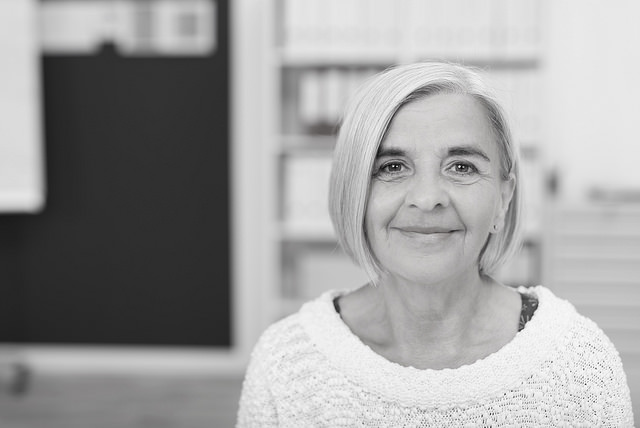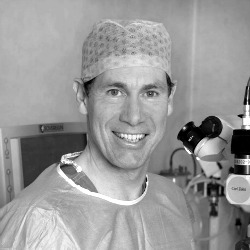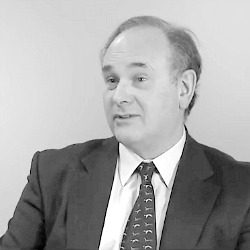Dry and Wet AMD
The Problem
Age-related macular degeneration (AMD) is a condition that usually occurs in later life. It causes painless loss of central vision, usually in one eye at a time. It does not cause complete loss of sight or blindness.
The macula is the part of the retina which responsible for central, detailed vision, for example when you look directly at something. The symptoms vary but you may notice difficulty reading small print, or there is a slight smudge or blank patch in the centre of your vision. Straight lines may look distorted or wavy.
There are two main types – dry AMD and wet AMD.
Dry AMD
Dry age-related macular degeneration causes a gradual and slow loss of vision. This form of AMD develops when the cells of the macula become damaged by a build-up of deposits called drusen. It’s the most common and least serious type of AMD. Occasionally it can develop into wet AMD.
Wet AMD
Wet AMD develops when abnormal blood vessels form underneath the macula, leak, bleed and causing damage to the extremely delicate light sensitive cells, known as photoreceptors.
When this occurs the patient notices relatively sudden onset of blurring or distortion of vision. However it is possible that patients don’t notice the loss of vision for some time as the reduced vision in the affected eye is compensated for by the other healthy eye.
Investigation and treatment need to carried out as matter of urgency;
special photographs are taken of the retina known as OCT (optical coherence tomography) which show the individual layers of the retina and if there are new blood vessels, and fluorescein angiography in which a dye is used to show the new blood vessels leaking.
The Treatment
It is now possible to treat wet AMD with a drug, for example Lucentis or Eyelea, which is injected into the eye. The drugs are anti-VEGFs (vascular endothelial growth factor) which stop the new blood vessels growing. An initial course of 3 injections is given, usually at monthly intervals. We will explain how often the drug will be given and how often monitoring is required. The aim of treatment is to halt the progress of wet AMD and approximately 30% of cases can improve vision.
We will explain how often the drug will be given and how often monitoring is required. The aim of treatment is to halt the progress of wet AMD and approximately 30% of cases can improve vision.
The injections take less than 5 minutes and should not be painful.
The main complications of this treatment are the 1 in 2000 chance of retinal detachment and eye infections.
There is no specific treatment for dry AMD as yet. Dry AMD treatment aims to help a person make the most of their vision for example with magnifying lenses that help to make reading easier and other visual aids.
There is some evidence to suggest a diet rich in leafy green vegetables may slow the progression of dry AMD. There are a number of over the counter products available which have been designed for people with dry AMD and contain the appropriate vitamins
Another option is to use eccentric viewing which is a technique of reading or watching television using an area in your peripheral field when you have central vision loss; you can look to the side of the what you wan to look at.
You should also ask whether you are eligible to register as “sight impaired” (partially sighted) or “severely sight impaired” (blind). Registration can help and sometimes to financial concessions.
Wet AMD can be treated with anti-vascular endothelial growth factor (anti-VEGF) medication. The anti-VEGF drugs are killing of blood vessels and are injected into the back of the eye.
The Result
Age-related macular degeneration treatment aims to restore vision and to reverse blindness.
Hear expert eye surgeon Mr. Paul Rosen discuss AMD and other Retinal Diseases
As seen in
Weekly eye treatment updates
We regularly share updates and video blog posts on the most common eye treatments












